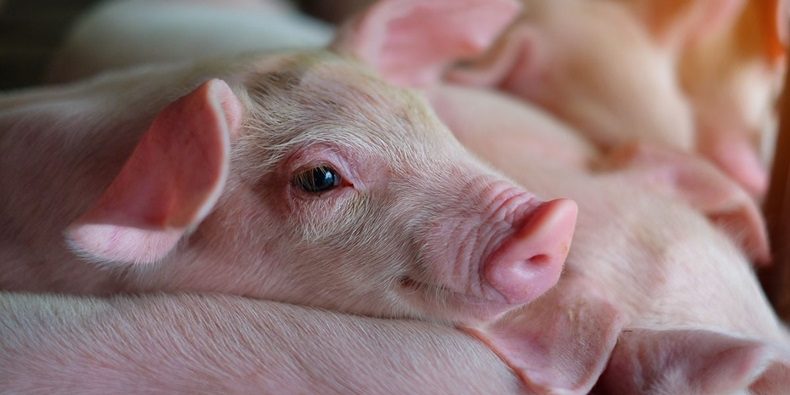

Piglets are also born with no immunity and can only get this from colostrum soon after birth. A minimum of 100 ml of colostrum per kilogram of birthweight within the first 16 hours is crucial to provide the energy, nutrients and antibodies needed for survival.
Monitor farrowing
Being present at farrowing is a critical part of good farrowing house management. If not possible on your unit, ask yourself why not?
Consider altering routines or rotas to provide cover at this crucial time or discuss with your vet the practicalities of using products to promote farrowing during the daytime, when you can be present.
Colostrum
– Colostrum is the ‘first milk’ and an essential source of energy, nutrients and immunity for the piglet
– Colostrum is critical for development of the piglets’ own immune system and optimum lifetime performance.
– Maximize colostrum intake in the first 6 hours after birth achieving at least 100 ml intake per kilogram of birthweight by 16 hours post farrowing. For example, a 1.45 kg piglet would need a minimum of 145 ml colostrum.
– Beyond 24 hours is too late as the piglets’ intestines can no longer absorb the large antibodies found in colostrum.
– Colostrum is only available in quantity for about 12 hours and after 20 hours the sow will be producing milk and not colostrum
Fostering Management
Cross fostering: Make sure all staff are aware of your farm fostering policy. Sometimes practices change for the better but can revert back if your cover staff are not aware of the changes. Wherever possible leave piglets with their own mothers to avoid disruption of the litter suckling patterns; even big piglets looking secure and strong will experience growth checks if fostered, especially if moved around frequently.
Even up numbers of piglets per litter: Matching the number of piglets to the number of functioning teats allows each piglet to have easy access to the colostrum produced after farrowing. This improves piglet survival rates and increases the chance of piglets achieving their potential growth rates.
Helping low birthweight piglets: It is a great disadvantage for small piglets to have to compete with larger littermates. Litters of small piglets should be created from all the ‘smalls’ born in a given farrowing day. Foster-litters of small piglets should be put with low-parity sows; the teat size of a low-parity sow will match the small mouths of the small piglets.
Piglet sex: In general it is the female pigs within a contemporary group which are best able to cope with management changes. Consider fostering female piglets rather than males when possible.
Following a few basic rules for fostering will help ensure piglet health:
– Foster within the first 24 hours
– Ensure foster piglets get early colostrum, preferably from their own mother, or if not then from a very recently farrowed foster mother
– Give the smaller piglets warm colostrum (sow, artificial or pasteurized bovine) or glucose
– Foster only once, it can be detrimental to keep moving litters around
– Never have more piglets than functioning teats on sows
– Remember, small piglets find suckling from large teats difficult
– Foster within a room (batch of piglets) wherever possible, don’t move health problems to other groups
It is important to keep a close eye on the piglets to ensure their health. Be on the look out for fading piglets and take remedial action by fostering and providing electrolytes or additional milk.
Check for signs of ill health and treat according to the unit’s veterinary protocol. Ensure piglets are lying either on or under the heat source and not piling together, as this indicates chilling.
 Contact Jaguza Support
Contact Jaguza Support